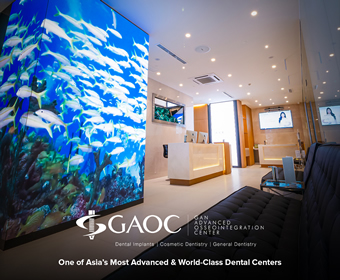By Celine Ting
In ever-evolving business environments, continuous learning and development have become critical components for organisations seeking long-term success. Companies are discovering that prioritising continuous learning and development can significantly enhance employee retention.
LinkedIn’s recent report underscores the critical link between career development and employee loyalty showing 94 per cent of employees would be more likely to stay with a company that invests in their career development.
No longer are these efforts just tools for professional growth; they are now key drivers in retaining top-performing talents and embedding one of the most valuable business principles—ongoing adaptability and progress.
Retaining skilled employees has become a top priority for organisations across industries. Traditional retention methods, such as competitive salaries and benefits, are no longer sufficient. Modern employees, especially the new wave of Gen Z professionals, are searching for something more such as opportunities for personal growth and continuous learning that will keep them engaged and motivated. Understanding how to cater to these expectations is crucial for businesses aiming to hold onto their top performers.
But before diving into what keeps Gen Z engaged, what could be the challenges faced by employers to retain employees from this specific generation?
The challenges of retaining Gen Z employees
One of the most notable challenges in employee retention today lies in understanding the unique preferences and demands of Gen Z employees. This generation is redefining the way businesses approach workforce development, bringing fresh perspectives and expectations into the workplace.
Gen Z values personal and professional growth above many other traditional benefits. They seek immediate opportunities to upskill and acquire new knowledge. If their roles don’t offer such opportunities, they tend to become disengaged, looking elsewhere for environments that will provide the development they crave.
Furthermore, this generation tends to be impatient with the traditional concept of career progression. Long-term corporate ladders don’t align with their desire for quick advancements and visible results. Gen Z employees are often eager to take on leadership roles and expect clear paths for mentorship and growth to be laid out from the very beginning.
Along with this impatience for advancement, Gen Z prioritises purpose-driven work. They are highly motivated by aligning their values with the mission of their employers so, organisations that fail to provide meaningful, value-aligned work are less likely to retain these employees in the long run.
Being digital natives, Gen Z expects their workplace to fully embrace technology. They have grown up with access to digital tools, platforms, and resources that have made information easily accessible and on-demand.
As a result, they expect continuous learning to be integrated into their work experiences through innovative, technology-driven solutions. Companies are encouraged to adapt their approach to employee development, taking into account Gen Z’s unique needs and expectations in order to attract and retain top talent from this generation.
Integrating continuous learning for retention
In response to the evolving expectations of modern employees, businesses are finding that creating a culture of continuous learning can be one of the most effective retention strategies. Offering development opportunities keeps employees engaged and helps them feel valued, as they see clear pathways for growth within the company.
One of the most impactful ways businesses can promote continuous learning is by offering personalised development plans. These plans can be tailored to meet the specific needs and interests of each employee.
By combining technical training, leadership development, and soft skills, companies can create a holistic learning experience that resonates with employees’ career aspirations.
Digital learning platforms offer another effective solution. E-learning platforms, like OpenAcademy, provide employees with access to a vast library of on-demand courses, allowing them to engage with content at their own pace.
For tech-savvy Gen Z employees, digital platforms not only enhance accessibility but also align with their preferred methods of information consumption. Mentorship is another key approach that facilitates continuous learning.
Connecting younger employees with seasoned mentors fosters both personal and professional growth. Mentorship relationships encourage knowledge sharing, provide real-time feedback, and create a sense of belonging, all of which help employees feel more connected to their organisations.
To truly integrate learning into a company’s culture, organisations must go beyond formal training programs. Promoting a mindset of continuous improvement requires fostering an environment where learning happens organically through collaboration, experimentation, and innovation.
Leaders and managers should act as role models by embracing learning and encouraging employees to do the same. Celebrating achievements in learning, sharing knowledge, and recognizing efforts to grow can further enhance this culture.
It’s also important to ensure that learning and development initiatives align with organisational goals. When employees can see how their growth contributes to the company’s success, they are more likely to engage with learning opportunities. Demonstrating the impact of learning programs on business outcomes strengthens the connection between personal development and overall organisational performance.
Talent retention through continuous learning is key
In today’s competitive job market, continuous learning and development are no longer optional—they are essential for employee retention. By addressing the specific needs of younger generations, such as Gen Z, and integrating learning opportunities into the very fabric of company culture, organisations can not only retain their top performers but also create a dynamic and engaged workforce.
The integration of continuous learning fosters a culture of growth that benefits both employees and businesses. Companies like OpenAcademy exemplify how learning and development can become a driving force for engagement, retention, and innovation.
As the future of work continues to evolve, organisations that prioritise continuous learning will be best positioned to adapt, thrive, and succeed.
Celine Ting is co-founder and managing director of OpenAcademy
The post Cracking the code: How to retain Malaysia’s Gen Z talent for the future appeared first on HR ASIA.








